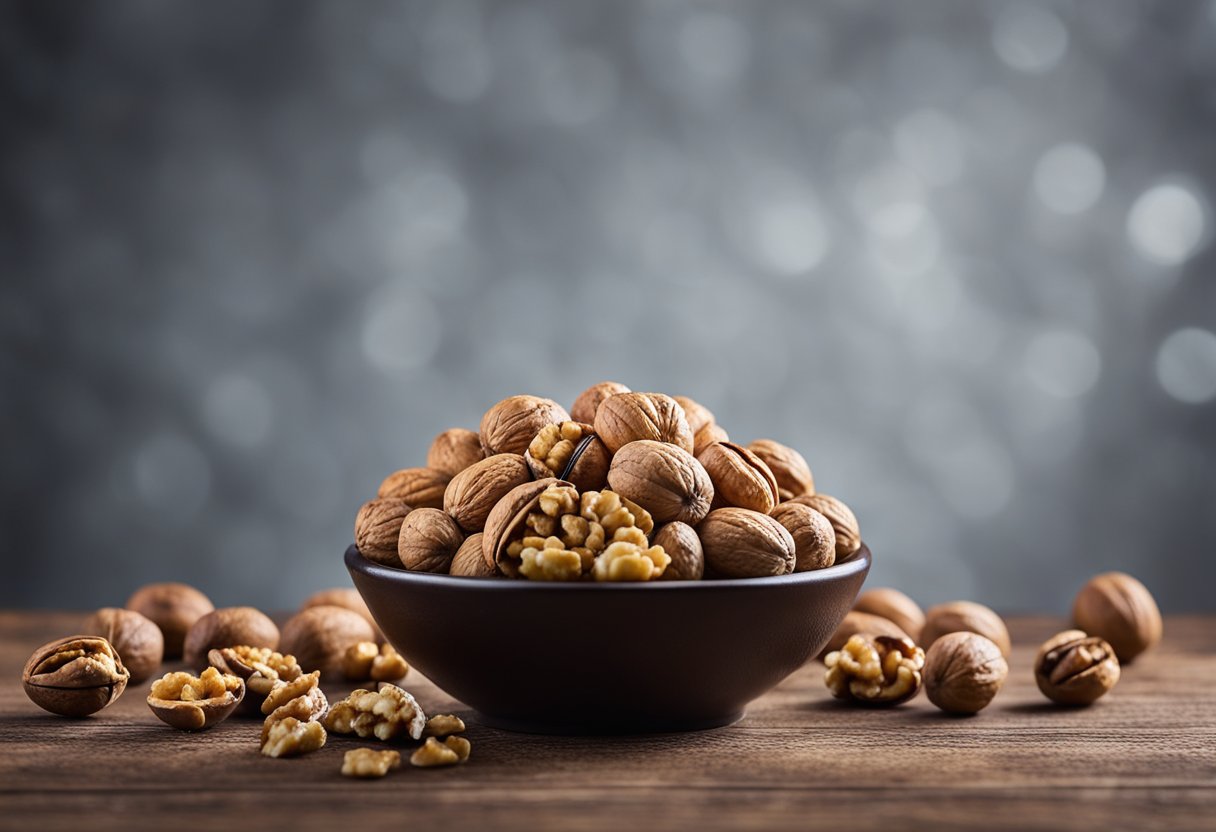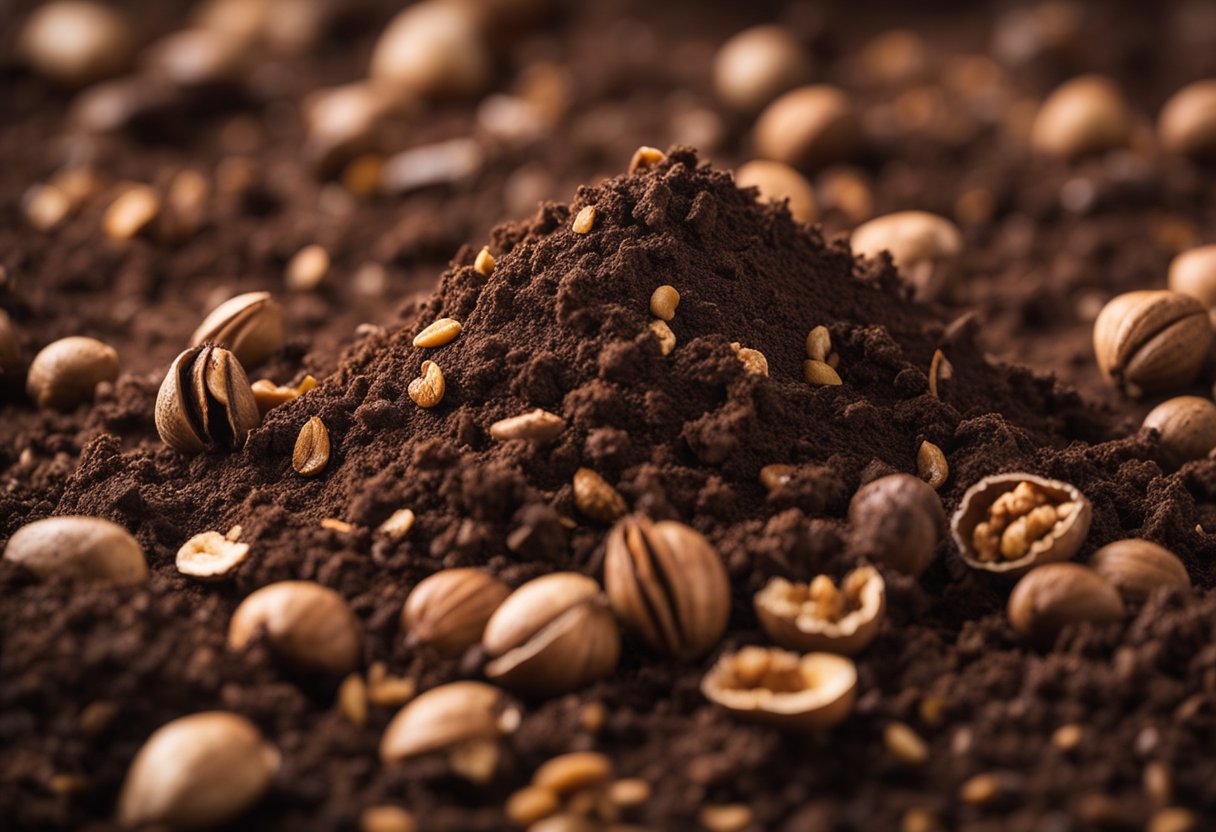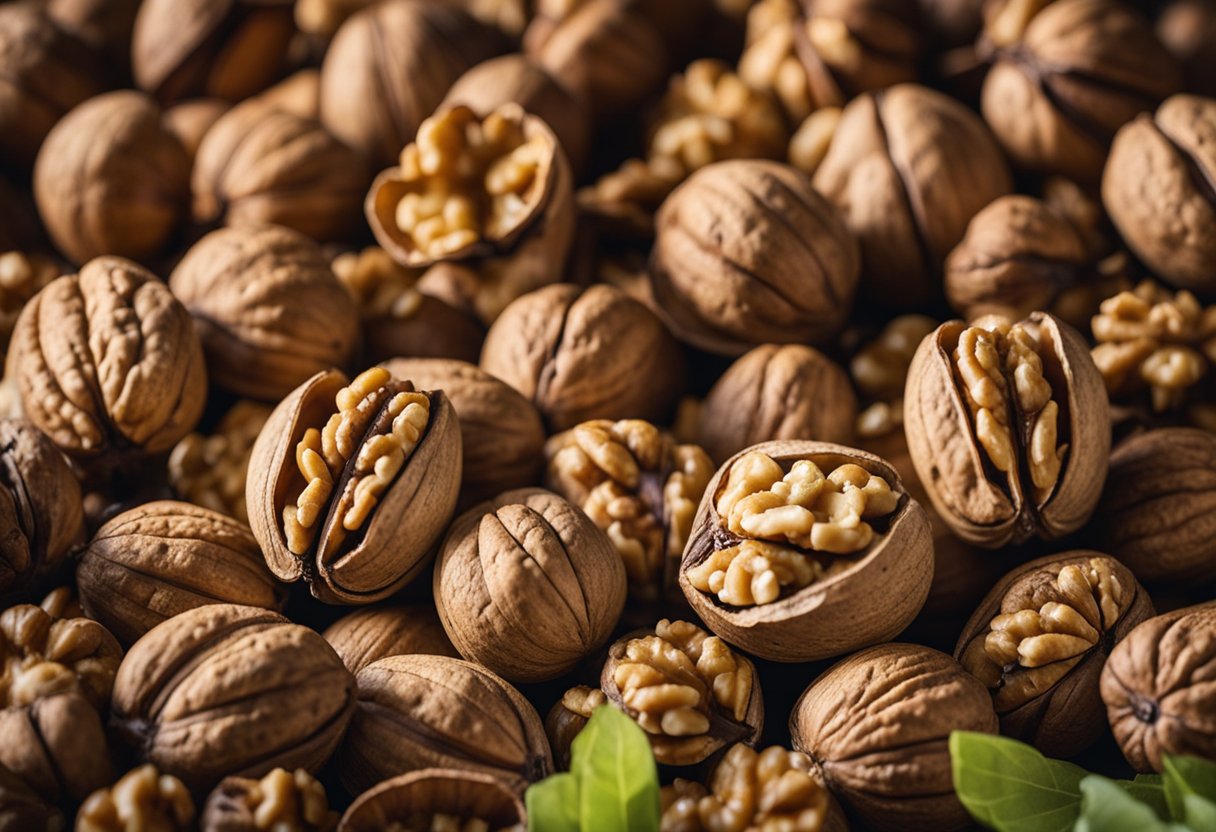As an Amazon Associate I earn from qualifying purchases.
At A Glance
Walnuts, particularly their shells, can be composted but with caution. Walnut trees produce a substance called juglone, which is toxic to some other plants. The juglone content in the nuts and shells can potentially harm or inhibit the growth of sensitive plants when used in compost. However, the toxicity of juglone diminishes over time and with exposure to air, water, and soil organisms. It’s advisable to age walnut shells in a separate pile for an extended period before incorporating them into your compost, to allow the juglone to break down. Crushing or breaking down the shells into smaller pieces can expedite this process. Additionally, testing the compost on a small area before widespread use or avoiding the use of walnut compost near juglone-sensitive plants can be a prudent approach.
Composting is a great way to turn organic waste into nutrient-rich soil for your garden. However, not all waste products are suitable for composting, including some types of food scraps like meat, dairy, and oily nuts such as walnuts. This raises the question, can you compost walnuts?

According to a few sources, it is safe to compost walnut tree leaves and husks. Walnuts are allelopathic trees, which means they can be toxic to plants growing under their canopy. However, their toxins are only released when the plant is damaged. If you currently have a walnut tree overhanging your garden, remove any fallen walnut leaf litter before composting.
One concern with composting walnuts is the presence of juglone, a chemical compound that is toxic to some plants. Walnut leaves have the highest juglone content in the spring. However, transmission of juglone into the soil through the roots is of the greatest concern, so consider the distance between the tree and your vegetable garden. With proper precautions, you can safely compost walnuts and create nutrient-rich soil for your plants.
Understanding Composting

Composting is the process of breaking down organic material into a nutrient-rich soil amendment that can be used to improve soil health and grow healthy plants. Composting is a natural process that occurs when organic materials such as leaves, grass clippings, and food scraps are mixed together and allowed to decompose.
Composting requires the right balance of carbon and nitrogen-rich materials, as well as moisture and oxygen. Carbon-rich materials, such as dried leaves and wood chips, provide the energy source for microorganisms that break down the organic matter. Nitrogen-rich materials, such as food scraps and grass clippings, provide the protein source that microorganisms need to grow and reproduce.
Composting can be done in a variety of ways, including in a compost pile or bin, or using a compost tumbler. A well-managed compost pile can be low-maintenance and can produce high-quality compost in just a few months.
Good compost management is important to ensure that the compost pile stays healthy and productive. This includes making sure there is enough moisture in the pile, turning the pile regularly to provide oxygen, and adding a diverse group of plant materials to provide a variety of nutrients.
Composting is a great way to reduce waste and create a valuable resource for your garden. By composting organic materials, you can reduce the amount of waste that goes into landfills and help improve soil health in your garden.
Composting Walnuts

As a gardener, I have often wondered if I can compost walnuts. After conducting some research, I have found that walnuts can be composted, but it’s best to be cautious.
Walnuts contain a toxin called juglone, which can be harmful to some plants and vegetables. This toxin is found in the leaves, shells, and roots of the black walnut tree. When composting walnuts, it’s important to keep in mind that the toxin juglone can remain in the soil for up to two years.
To avoid any potential issues, it’s best to compost walnuts in a separate bin away from your other compost. This will give the walnuts time to break down and oxidize out any toxins. It’s recommended to compost walnut husks for at least six months before using them as a general-purpose mulch for most of the garden. However, to be safe, they should ideally be composted for two years as part of a three-bin compost system.
If you are considering vegetable gardening near walnuts, it’s important to note that the transmission of juglone into the soil through the roots is of the greatest concern. Walnut leaves have the highest juglone content in the spring, but they can still be applied to your vegetable garden as compost. Just be sure to consider the distance between the tree and your vegetable garden.
In conclusion, composting walnuts can be done, but it’s best to be cautious. By composting walnuts separately and allowing them to break down for a sufficient amount of time, you can ensure that the compost is safe to use in your garden.
Materials to Avoid in Composting
When it comes to composting, there are certain materials that should be avoided to prevent contamination and to ensure that the compost is healthy and effective.
One of the main materials to avoid is meat and fish scraps. The stench of old seafood or the fetid smell of rotting meat can be foul and attract rodents. Grease, oils, and fats should also be avoided as they can attract pests and slow down the composting process.
Dairy products, such as milk and cheese, should also be avoided as they can create unpleasant odors and attract pests. Eggs should be added in moderation as they can also attract pests.
Toxic materials, such as pesticides, should never be added to compost as they can harm plants and animals. Coal, charcoal, and ashes should also be avoided as they can contain harmful chemicals.
Bones should not be added to compost as they take a long time to break down and can attract pests. Plastic composters should also be avoided as they can release harmful chemicals into the compost.
In summary, it’s important to be mindful of what materials are added to compost to ensure that it remains healthy and effective. Avoiding meat, fish, grease, dairy products, eggs, toxic materials, coal, charcoal, bones, oils, fat, pesticides, ashes, coal ash, and plastic composters will help ensure that your compost is safe and effective.
Composting Specifics for Black Walnut Trees
When it comes to composting, black walnut trees require special attention due to the toxin juglone that they produce. Juglone is found in all parts of the black walnut tree, including the leaves, bark, and roots. This toxin can be harmful to certain plants and can limit the diversity of plant materials that can be composted with black walnut leaves and other parts.
To ensure that the compost is safe for your plants, it is recommended to compost black walnut leaves, bark, and other plant materials for at least six months before using the compost in your garden. This will allow the juglone to break down to a safe level for plants that are sensitive to it.
It is also important to consider the distance between the black walnut tree and your compost pile or garden. The transmission of juglone into the soil through the roots is of the greatest concern. Therefore, it is recommended to keep the compost pile or garden at least 50-60 feet away from the tree.
In addition to the distance, it is also important to consider the diversity of plant materials that are being composted with the black walnut leaves and other parts. Certain plants, such as tomatoes, potatoes, and peppers, are particularly sensitive to juglone and should not be composted with black walnut leaves or other parts.
Overall, composting black walnut trees requires specific attention and care to ensure that the compost is safe for your plants. By composting for at least six months and keeping a safe distance from the tree, you can create a rich and healthy compost without harming your plants.
